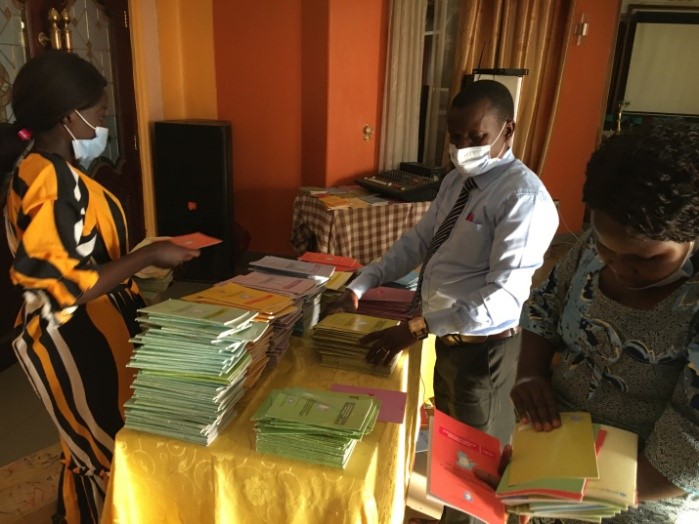Equipping Health Workers with Treatment Protocols and Job Aids to Reduce Maternal and Child Mortality in DRC
To read this story in French, please click here.
A significant proportion of maternal and child deaths can be avoided if women and children have access to quality, adequate health services, and if the necessary quality medical products, supplies, and skilled health providers are available. In the Democratic Republic of the Congo (DRC), which has one of the highest maternal, newborn, and child mortality rates globally, the national under-five mortality rate is 84.8/1,000 live births (UNICEF, 2019) and the maternal mortality rate is 473/100,000 live births (UNICEF, 2017). The situation is exacerbated by war and lingering conflict in East DRC, where maternal mortality is estimated to be double the average for sub-Saharan Africa. The lack of guidelines at local levels and weak implementation of treatment protocols negatively affect access to and appropriate use of essential maternal, neonatal, and child health (MNCH) commodities.

Reception of MNCH protocols and job aids in Ituri. Photo credit: Dr. Jérémie Fikiri/USAID MTaPS
Most maternal and child deaths are caused by preventable diseases, including post-partum hemorrhage and eclampsia in women, and newborn sepsis, pneumonia, malaria, diarrhea, measles, and other acute infections in under-fives, worsened by malnutrition. The findings of an MTaPS consultation with health care providers in Ituri and Nord Kivu indicated that poor management of health conditions in women and children was due
to health workers’ capacity gaps and the lack of protocols and job aids to guide patient management.
MTaPS supports the review of policies and systems in the DRC to create favorable conditions for increased access to and appropriate use of MNCH medical products and services. To bridge the identified gaps, the program, in collaboration with the Directorate for Family Health at the central level and reproductive health programs at the provincial level, disseminated 16 MNCH protocols and job aids in 170 health facilities in Nord Kivu and Ituri. The treatment protocols and job aids included guidelines for oxytocin, magnesium sulphate, and other essential medicines. The materials were also distributed for community MNCH interventions through orientation sessions.
MNCH treatment guidelines and job aids help reduce errors and enhance the quality of patient care in North Kivu and Ituri, which is saving mothers’ and children’s lives and reducing the national maternal and child mortality rates in DRC.
These efforts in the DRC are advancing MTaPS’ programmatic goal to help low- and middle-income countries strengthen their pharmaceutical systems, which is critical to sustainably improve health system performance. The work is also moving the needle on USAID’s goal of preventing child and maternal deaths.
“We are very happy about MTaPS’ support. We had lost many patients in the past due to a lack of knowledge and protocols/job aids to assist and guide the management of patients, especially the administration of medicines such as magnesium sulfate. For example, two pre-eclamptic women died due to the fact that health providers didn’t know how to use magnesium sulfate whereas this product was available. But today, with the support from MTaPS, we can no longer make such mistakes and errors as we have all the needed guiding protocols and job aids.” Dr. Patrick Basara, Head of Rwampara Health Zone in Ituri